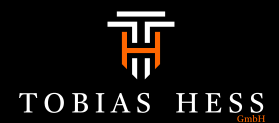🕔: 4 min – Technical: ✔
Everyone is suddenly talking about artificial intelligence (AI). However, very few people know what this term actually means. Furthermore, AI is only a generic term and therefore does not always have the same meaning.
We would like to shed some light on this complex topic. It should also be noted that there are more subcategories, but we will not cover these as they are not yet very relevant to the concrete industry (example: natural language processing).
In the past, this term was mostly associated with Hollywood and science fiction movies. “Terminator” or ” Short Circuit ” are just two examples in which AI is illustrated in the form of independently learning and evolving machines.
Artificial intelligence has been not always portrayed in a positive light, but rather as a threat, so there is a lot of uncertainty and even fear about what AI could mean for humanity.
But so far, that’s just Hollywood.
Latest since ChatGPT, everyone has suddenly encountered the term daily and there is nothing wrong with companies using it to their advantage, as it is just a generic term.
A little history
The term was originally coined in 1955 by the US computer scientist John McCarthy as part of a funding application for a research project. AI is a branch of computer science that aims to transfer certain abilities, such as human thinking, to computer systems and thus imitate them.

Weak AI
Narrow AI or Weak AI refers to artificial intelligence that has been created to perform pre-defined actions under certain parameters. Here, a human action is imitated by the machine carrying out a predefined reaction Y in a predefined situation X. This means that it cannot adapt to new situations or learn new tasks without being reprogrammed or redesigned.
If X1 then Y1, if X2 then Y2, otherwise Y3.
Clearly defined tasks are carried out according to predefined sequences, which already fulfils the requirements of artificial intelligence, but would probably not be regarded as such by most people.
Even Alexa, Siri and similar are currently considered weak AIs.
Strong AI
In contrast, a strong AI (strong AI or deep learning) is designed to mimic the cognitive abilities of a human being. It can recognize tasks and perform them autonomously based on experience without being limited to a specific set of tasks. This means that it can think, reason, and make decisions like a human being.
It should be noted that a strong AI has not yet been developed and we are far from achieving this level of intelligence.
For a better understanding, here is a fictitious example:
A machine uses data to determine a production plan for the purpose of optimization. The machine is neither told which parameters to pay attention to nor which conclusions to draw from them, and it solves the task without human intervention.
Machine learning
Machine learning or ML is capable of adapting and optimizing processes by itself based on learning from data. In contrast to strong AI, the task and the solution approach are still clearly defined.
So, machine learning is always AI, but AI is not always machine learning.

Conclusion
The use of artificial intelligence is not a new invention and is already in use in many applications. Each of us has already used AI consciously or unconsciously (e.g. search engines, chess computers, navigation systems).
The term is currently used as a buzzword in marketing to emphasize how ‘smart’ something is. It should be noted that this is not wrong. Some companies have deliberately stopped using the term and instead refer to it as “machine learning” or deep learning.
We work with ML in various applications for the concrete industry (machine control, ERP, computer vision) and are happy to support your ideas or exchange experiences.
In the next article, we will look at what needs to be done to implement machine learning, and what may already be in place.




